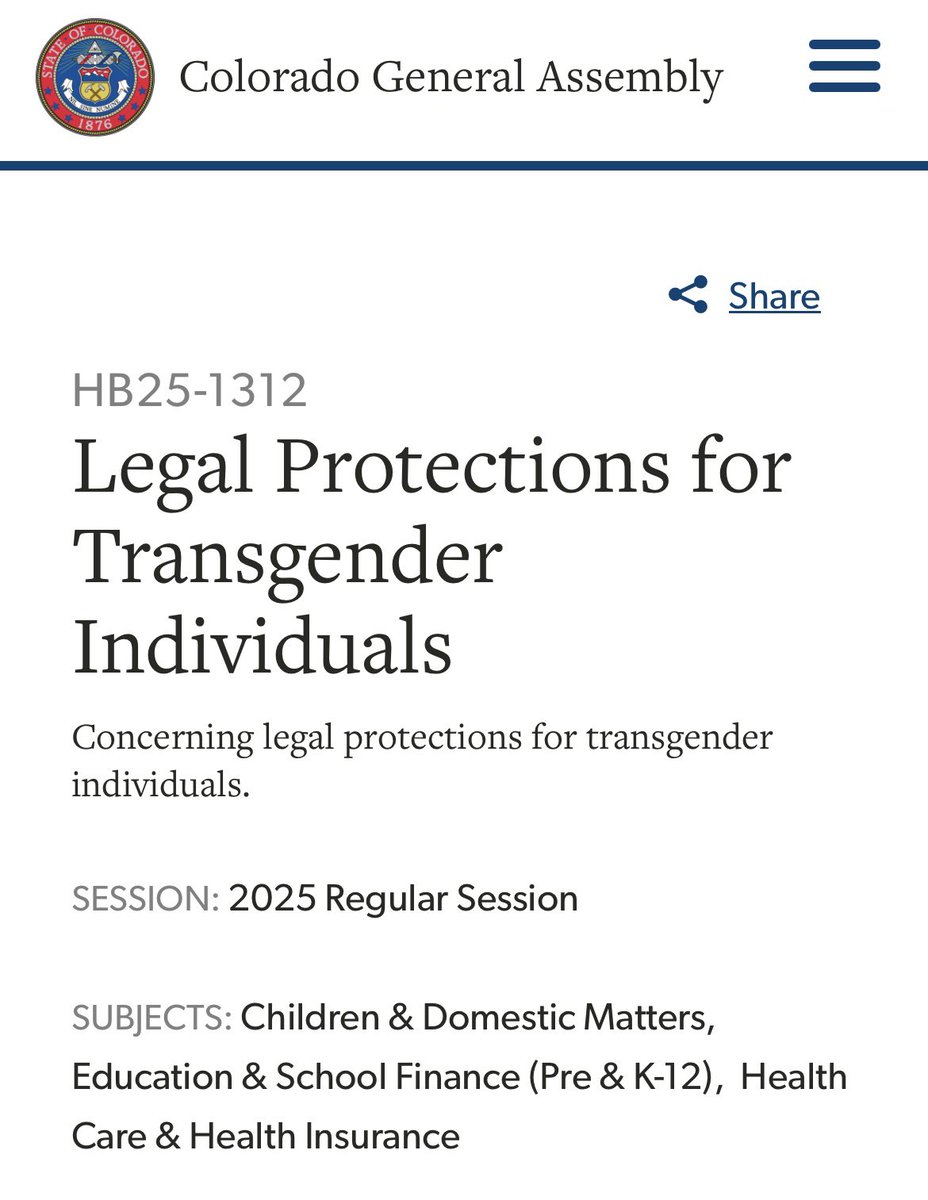BREAKING: Colorado’s House Bill 25-1312 Sparks Controversy Over Parental Rights and Identity Protection!
Colorado Democrats have introduced House Bill 25-1312, a controversial measure aimed at protecting transgender individuals by redefining parental and citizen rights. This legislation proposes that “misgendering” and “deadnaming” could be classified as child abuse, raising significant concerns among parents and advocates of free speech. The bill has sparked intense debate about the balance between supporting transgender rights and preserving parental authority. As discussions unfold, this legislation could set a precedent for how gender identity is addressed legally in Colorado and beyond. Stay informed on the implications of this bill and its potential impact on family dynamics and individual rights.

BREAKING: Today, RADICAL Colorado Democrats are introducing House Bill 25-1312, which strips citizens and parents of their rights in order to protect transgender individuals, including:
•“Misgendering” and “deadnaming” would be considered child abuse and classified as… pic.twitter.com/WIofSMrSv0
— I Meme Therefore I Am (@ImMeme0) April 1, 2025
BREAKING: Today, RADICAL Colorado Democrats are introducing House Bill 25-1312
In a significant move, Colorado Democrats have introduced House Bill 25-1312, which aims to redefine the rights of citizens and parents in the context of protecting transgender individuals. This bill has sparked intense debates about parental rights and the welfare of LGBTQ+ youth. The proposed legislation seeks to address issues that many see as crucial in fostering an inclusive society.
Stripping Rights: A Controversial Approach
House Bill 25-1312 has garnered attention for its bold approach to the rights of parents and citizens. Critics argue that the bill strips away fundamental rights by categorizing actions like “misgendering” and “deadnaming” as forms of child abuse. The implications of labeling these terms as abuse raise questions about the balance between protecting individual identities and upholding parental authority. While the intention behind the bill is to support transgender youth, many are concerned about the potential overreach into family dynamics and personal freedoms.
Understanding “Misgendering” and “Deadnaming”
To grasp the full impact of House Bill 25-1312, it’s essential to understand what “misgendering” and “deadnaming” mean. Misgendering occurs when someone is referred to using language that does not align with their gender identity. Similarly, deadnaming refers to the act of calling a transgender person by their birth name rather than their chosen name. The bill proposes that both actions be classified as abusive, which could lead to serious legal consequences for parents and guardians.
This classification is seen by supporters as a necessary step toward protecting the rights of transgender individuals, particularly minors. They argue that affirming a person’s gender identity is crucial for their mental health and overall well-being. However, opponents fear that such measures may infringe upon parental rights and create a contentious environment within families.
Public Reaction and Implications
The introduction of House Bill 25-1312 has sparked widespread discussion across various platforms, including social media. Many people are voicing their opinions about the potential effects of the bill. Some see it as a progressive step toward inclusivity, while others view it as an attack on parental rights and traditional values. The ongoing debates are likely to shape the future of similar legislation across the United States.
Critics have taken to platforms like Twitter to express their concerns, echoing sentiments that the bill represents a radical shift in how society views parental authority. For instance, one tweet highlights the fears surrounding the classification of “misgendering” and “deadnaming” as child abuse, emphasizing the potential consequences for families navigating these complex issues.
The Road Ahead: What’s Next?
As House Bill 25-1312 moves through the legislative process, it is likely to face numerous challenges, including public protests, legal scrutiny, and potential amendments. The discussions surrounding this bill highlight a critical moment in the ongoing struggle for transgender rights and parental involvement in the lives of their children.
In conclusion, the introduction of this bill is a significant event that will undoubtedly influence the conversation on gender identity, parental rights, and child welfare in Colorado and beyond. As society grapples with these complex issues, it is essential to continue the dialogue in a respectful and informed manner.
